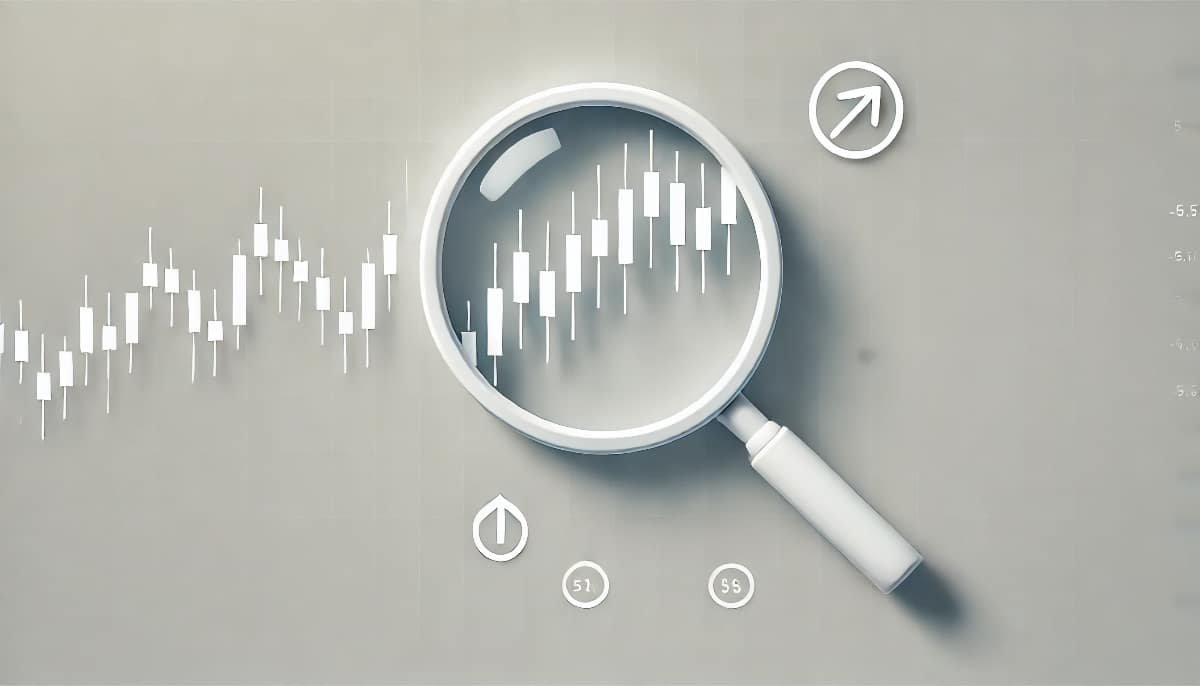Understanding the Forex Market
The foreign exchange market, commonly known as Forex or FX, is the largest and most liquid financial market in the world. It operates 24 hours a day, five days a week, and involves the trading of currencies. Unlike other financial markets, Forex has no central marketplace; trading is conducted over-the-counter (OTC) through a global network of banks, brokers, and financial institutions.
What is Forex Trading?
Forex trading involves the buying and selling of currency pairs. Traders speculate on the price movements of one currency against another, aiming to profit from these fluctuations. For example, if a trader believes that the Euro will strengthen against the US Dollar, they might buy the EUR/USD pair. If the Euro does indeed appreciate, the trader can sell the pair at a higher price, making a profit.
Key Players in the Forex Market
The Forex market is composed of various participants, each with their own motivations and strategies. These include:
- Central Banks: They influence the market through monetary policy and interventions.
- Commercial Banks: They facilitate currency transactions for clients and engage in proprietary trading.
- Hedge Funds: They use Forex to hedge against risks and speculate for profit.
- Corporations: They participate in Forex to manage international trade and investment risks.
- Retail Traders: Individual investors who trade through online platforms.
Essential Forex Trading Strategies
Successful Forex trading requires a well-thought-out strategy. Here are some of the most popular strategies used by traders:
Scalping
Scalping is a short-term trading strategy that involves making numerous small trades to capture minor price movements. Scalpers aim to make quick profits by entering and exiting the market within minutes or even seconds. This strategy requires a high level of concentration and quick decision-making skills.
Day Trading
Day trading involves opening and closing positions within the same trading day. Day traders aim to profit from intraday price movements and avoid overnight risks. This strategy requires a good understanding of technical analysis and market trends.
Swing Trading
Swing trading is a medium-term strategy that involves holding positions for several days or weeks. Swing traders aim to capture larger price movements and often use technical and fundamental analysis to identify potential trade opportunities.
Position Trading
Position trading is a long-term strategy that involves holding positions for weeks, months, or even years. Position traders focus on fundamental analysis and macroeconomic factors to make their trading decisions. This strategy requires patience and a long-term perspective.
Technical Analysis Tools
Technical analysis is a crucial aspect of Forex trading. It involves analysing price charts and using various tools and indicators to predict future price movements. Here are some essential technical analysis tools:
Moving Averages
Moving averages smooth out price data to identify trends. The two most common types are the Simple Moving Average (SMA) and the Exponential Moving Average (EMA). Traders use moving averages to identify trend direction and potential reversal points.
Relative Strength Index (RSI)
The RSI is a momentum oscillator that measures the speed and change of price movements. It ranges from 0 to 100 and helps identify overbought or oversold conditions. An RSI above 70 indicates overbought conditions, while an RSI below 30 indicates oversold conditions.
Bollinger Bands
Bollinger Bands consist of a middle band (SMA) and two outer bands that represent standard deviations from the middle band. They help identify volatility and potential reversal points. When the price moves outside the bands, it may indicate overbought or oversold conditions.
Fibonacci Retracement
Fibonacci retracement levels are horizontal lines that indicate potential support and resistance levels. They are based on the Fibonacci sequence and are used to identify potential reversal points during a trend.
Risk Management in Forex Trading
Effective risk management is crucial for long-term success in Forex trading. Here are some key risk management techniques:
Setting Stop-Loss Orders
A stop-loss order is an instruction to close a trade at a predetermined price level to limit losses. Setting stop-loss orders helps protect your capital and prevents emotional decision-making.
Using Proper Position Sizing
Position sizing involves determining the appropriate amount of capital to risk on each trade. Traders should avoid risking more than a small percentage of their total capital on a single trade to minimise potential losses.
Diversifying Your Portfolio
Diversification involves spreading your investments across different currency pairs and asset classes to reduce risk. By diversifying your portfolio, you can mitigate the impact of adverse price movements in any single asset.
Avoiding Over-Leverage
Leverage allows traders to control larger positions with a smaller amount of capital. While leverage can amplify profits, it also increases the risk of significant losses. Traders should use leverage cautiously and avoid over-leveraging their positions.
Developing a Trading Plan
A well-defined trading plan is essential for consistent success in Forex trading. Here are the key components of a trading plan:
Setting Clear Goals
Define your trading goals, such as profit targets, risk tolerance, and time commitment. Having clear goals helps you stay focused and motivated.
Choosing a Trading Strategy
Select a trading strategy that aligns with your goals, risk tolerance, and trading style. Stick to your chosen strategy and avoid switching between strategies frequently.
Creating a Trading Journal
Maintain a trading journal to record your trades, including entry and exit points, trade size, and the rationale behind each trade. Reviewing your journal helps you identify patterns and improve your trading performance.
Regularly Reviewing and Adjusting Your Plan
Periodically review your trading plan and make adjustments based on your performance and changing market conditions. A flexible trading plan allows you to adapt to new opportunities and challenges.
Psychological Aspects of Forex Trading
Emotional control and psychological resilience are critical for successful Forex trading. Here are some tips to manage your emotions:
Maintaining Discipline
Stick to your trading plan and avoid making impulsive decisions based on emotions. Discipline helps you stay focused and consistent in your trading approach.
Managing Stress
Trading can be stressful, especially during periods of high volatility. Practice stress management techniques, such as deep breathing, meditation, and regular exercise, to stay calm and focused.
Accepting Losses
Losses are an inevitable part of trading. Accepting losses and learning from them helps you stay resilient and avoid emotional decision-making.
Building Confidence
Confidence in your trading strategy and abilities is essential for success. Build confidence by gaining knowledge, practising your strategy, and learning from your experiences.
Utilising Forex Trading Tools and Resources
Various tools and resources can enhance your Forex trading experience. Here are some valuable tools to consider:
Trading Platforms
Choose a reliable trading platform that offers advanced charting tools, real-time data, and a user-friendly interface. Popular platforms include MetaTrader 4 (MT4), MetaTrader 5 (MT5), and cTrader.
Economic Calendars
An economic calendar provides information on upcoming economic events and data releases that can impact the Forex market. Staying informed about these events helps you make better trading decisions.
Forex News Websites
Stay updated with the latest market news and analysis from reputable Forex news websites. These sources provide valuable insights into market trends and potential trade opportunities.
Trading Signals
Trading signals are recommendations for entering or exiting trades based on technical or fundamental analysis. While signals can be helpful, it’s essential to verify their accuracy and reliability before acting on them.
Conclusion
Making money on Forex requires a combination of knowledge, strategy, and discipline. By understanding the Forex market, utilising effective trading strategies, managing risk, and maintaining emotional control, you can increase your chances of success. Remember to continuously educate yourself, adapt to changing market conditions, and stay committed to your trading plan. With dedication and perseverance, you can achieve your financial goals in the Forex market.

Q&A Section
Q1: What is the Forex market?
A1: The Forex market is the largest and most liquid financial market in the world, where currencies are traded 24 hours a day, five days a week.
Q2: What are some popular Forex trading strategies?
A2: Popular Forex trading strategies include scalping, day trading, swing trading, and position trading.
Q3: How can I manage risk in Forex trading?
A3: Risk management techniques include setting stop-loss orders, using proper position sizing, diversifying your portfolio, and avoiding over-leverage.
Q4: Why is a trading plan important?
A4: A trading plan helps you define your goals, choose a strategy, maintain discipline, and adapt to changing market conditions, leading to consistent success.
Q5: How can I improve my emotional control in Forex trading?
A5: Improve emotional control by maintaining discipline, managing stress, accepting losses, and building confidence through knowledge and practice.
Articles for further reading:
Here are some insightful articles that offer practical tips for achieving better results in the Forex trading market:
- 17 Actionable Forex Trading Tips – This article emphasizes strategies used by experienced traders. Key takeaways include having a strong work ethic, focusing on long-term gains, and sharpening your mental state through practices like meditation. Discipline, patience, and understanding the flow of information are crucial for success in Forex trading(MFXC).
- 8 Forex Trading Tips from Investopedia – A comprehensive guide that focuses on creating a solid trading methodology, synchronizing timeframes for entry and exit points, and calculating expectancy to understand your strategy’s success rate. Risk management is also emphasized, with tips on how to balance risk and reward effectively(Investopedia).
- 10 Essential Tips for Forex Trading Success – This article offers practical advice, such as using demo accounts for practice, developing a well-defined trading plan, and understanding the impact of economic news on the Forex market. Risk management, controlling emotions, and continuous learning are highlighted as keys to success(Forex Academy).
- Top Forex Trading Tips from Benzinga – Focused on the importance of a consistent trading strategy, this piece also highlights the role of goal setting and proper platform selection. Tips include identifying optimal entry and exit points, maintaining a trading journal, and understanding the role of leverage in Forex trading(Benzinga).
- Forex Tips and Tricks from Trading Literacy – A detailed look at using technical and fundamental analysis, developing a disciplined trading mindset, and the role of central bank decisions. It also covers common mistakes traders should avoid, such as overtrading and ignoring stop-loss orders(Trading Literacy).
These articles provide a strong foundation for both beginners and experienced traders looking to improve their Forex trading performance.















 How to trade CFD? (00:49)
How to trade CFD? (00:49) How to trade binary options*? (01:22)
How to trade binary options*? (01:22) Forex. How to start? (01:01)
Forex. How to start? (01:01)